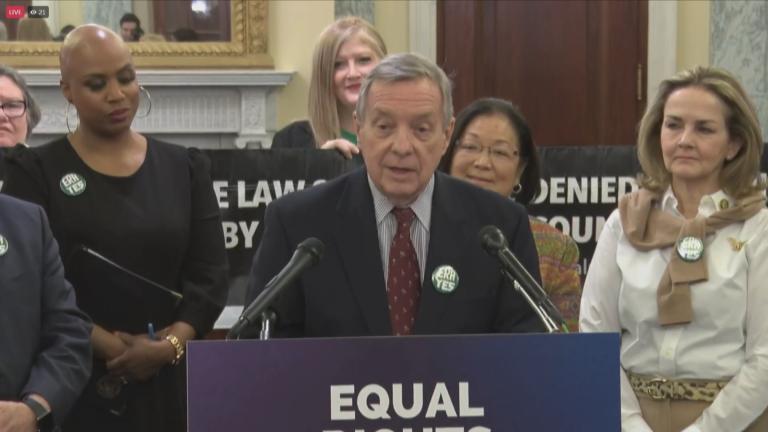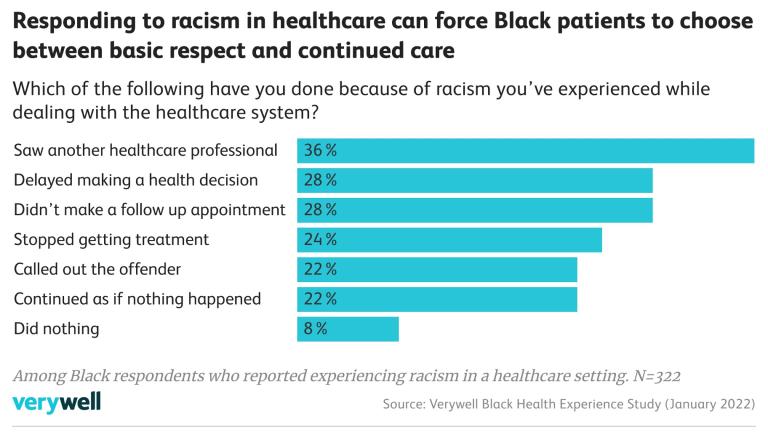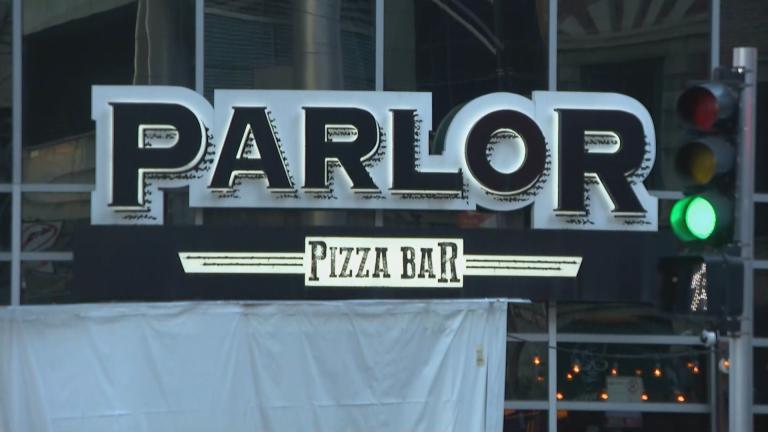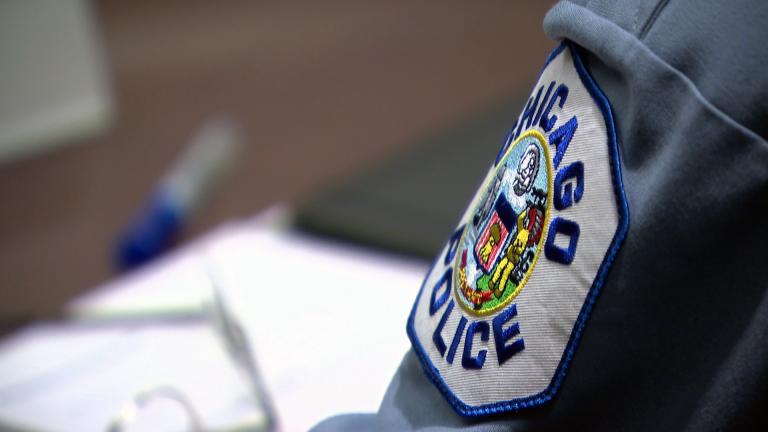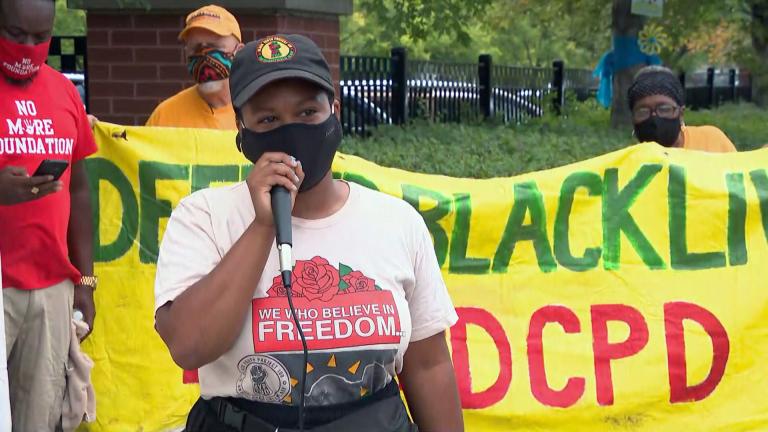Wednesday marks the third anniversary of the massacre at the Tree of Life synagogue in Pittsburgh where an avowed white supremacist took the lives of 11 worshippers.
Ahead of that grim remembrance, the American Jewish Committee has released a report titled The State of Antisemitism in America that details the rise of antisemitism.
Among the report’s key findings:
– One in four American Jews say they have been targets of antisemitism in the last 12 months;
– Four in 10 American Jews have changed their behavior out of fear;
– Four out of 10 of all Americans have personally witnessed antisemitic incidents;
– And 82% of American Jews say antisemitism has risen over the last five years while only 44% of the general public believes that to be the case.
Holly Huffnagle, the American Jewish Committee’s director for combating antisemitism, and Sarah van Loon, regional director for the American Jewish Committee in Chicago, discuss the report’s findings.
Below, an edited interview with van Loon.
In June, your predecessor Laurence Bolotin wrote an op-ed where he wrote about “unbridled fear” pervading Chicago’s Jewish community. Do you think the situation is still at that level of anxiety and fear?
van Loon: Looking at where we are today at the end of October compared to where we were earlier this summer, right after the conflict between Israel and the terrorist group Hamas, I would say the Jewish community is still quite fearful. But the fear is not as present. You’re not seeing the same level of anti-Israel demonstrations in the streets. Not the same level of attacks if you will. But there is definitely still apprehension and there is definitely still concern in the community. Absolutely.
In terms of the rise in antisemitism that we have seen in recent years, events in the Middle East can be a driver of that. But when you look at what drives the antisemitism we are seeing now, how much is that driven by homegrown terrorist threats like the rise of white supremacy?
van Loon: I think we all know antisemitism from the far right – from white supremacists – is something that we’re all unfortunately quite familiar with. But one of the things that AJC has long been heralding is that the hatred doesn’t just live there and in fact you’re seeing it grow even more on the far extreme left as well.
One of the things that this year’s survey showed was that more American Jews view the far left as posing an antisemitic threat. Compared to last year when only 61% of American Jews thought that the extreme political left posed a threat it increased in this year’s survey by 10% to 71% of American Jews saying that that the far left posed an antisemitic threat, particularly after the conflict in the spring…. where you saw more progressives engaging in anti-Jewish rhetoric.
We’ve certainly seen instances over the past year and a half where we’ve had individuals even here in Illinois comparing Gov. Pritzker to Hitler or using the Star of David as some type of anti-vax signifier, which is truly a distortion of the Holocaust and what that means. And so you’re seeing the amplification of conspiracy theories domestically and that is also fueling anti-Jewish hate.
We have seen instances of horrific attacks, but in terms of the day-to-day antisemitism that Jewish Americans endure, is it primarily online? Is it physical altercations and assaults? What would you say is the main venue for antisemitism in these times?
van Loon: That’s a great question. So just a few weeks ago we received the FBI data on 2020 hate crimes. And while Illinois thankfully had a 17% decrease, the surrounding states around us saw marked increases in hate crimes.
But what we’re seeing in our in our survey is that the physical attacks are still the minority… coming up and very much is more antisemitic remarks in person. And we’re seeing a little bit of an increase of antisemitic remarks online. But I think one of the main challenges that were always facing is just lack of data and lack of ability to report.
When you are looking at the 2020 data on hate crimes and you look at the Midwest as a whole – including Illinois, Indiana, Minnesota, the Dakotas and Wisconsin – you see a 45% increase in reported hate crimes just compared to 2019. There’s a decrease in Illinois, which is wonderful, but you compare that to Indiana where you’re looking at almost a 130% increase, and even Minnesota almost a 40% increase. So unfortunately, the number of reported hate crime incidents compared to 2019 has been increasing.
Why do you think people are still reluctant to report antisemitic incidents whether online or in person?
van Loon: I think it’s a combination. I think to a small degree they don’t want to bring attention to themselves. I think on another, it’s hard to acknowledge or face the reality if you will, but you were just a victim there. You know, we don’t like to be thought of in that way or to have to experience that and it’s easier to just kind of brush it under the rug.
How would you like to see the larger society respond to this report? How should we digest what we we’ve learned from these surveys and then move forward?
van Loon: I would love to see the larger society takes it more personally as well. One of the things that we’ve learned from antisemitism and anti-Jewish hate is that it never – it may start with our community – but it certainly doesn’t end there. We see it permeate out into other communities or other faith minorities and other groups. And so especially people of goodwill, we are looking for them. We are depending on their leadership to ensure that they’re talking about this with their communities to make sure that they understand that this is a societal problem, not just a Jewish problem.
I’d love to see the larger society respond to this report by understanding that they are implicated in it as well. That when they’re seeing an increase in antisemitism, that that means all people of good will need to stand up and do more to combat hate together.
Interview has been condensed and edited.

